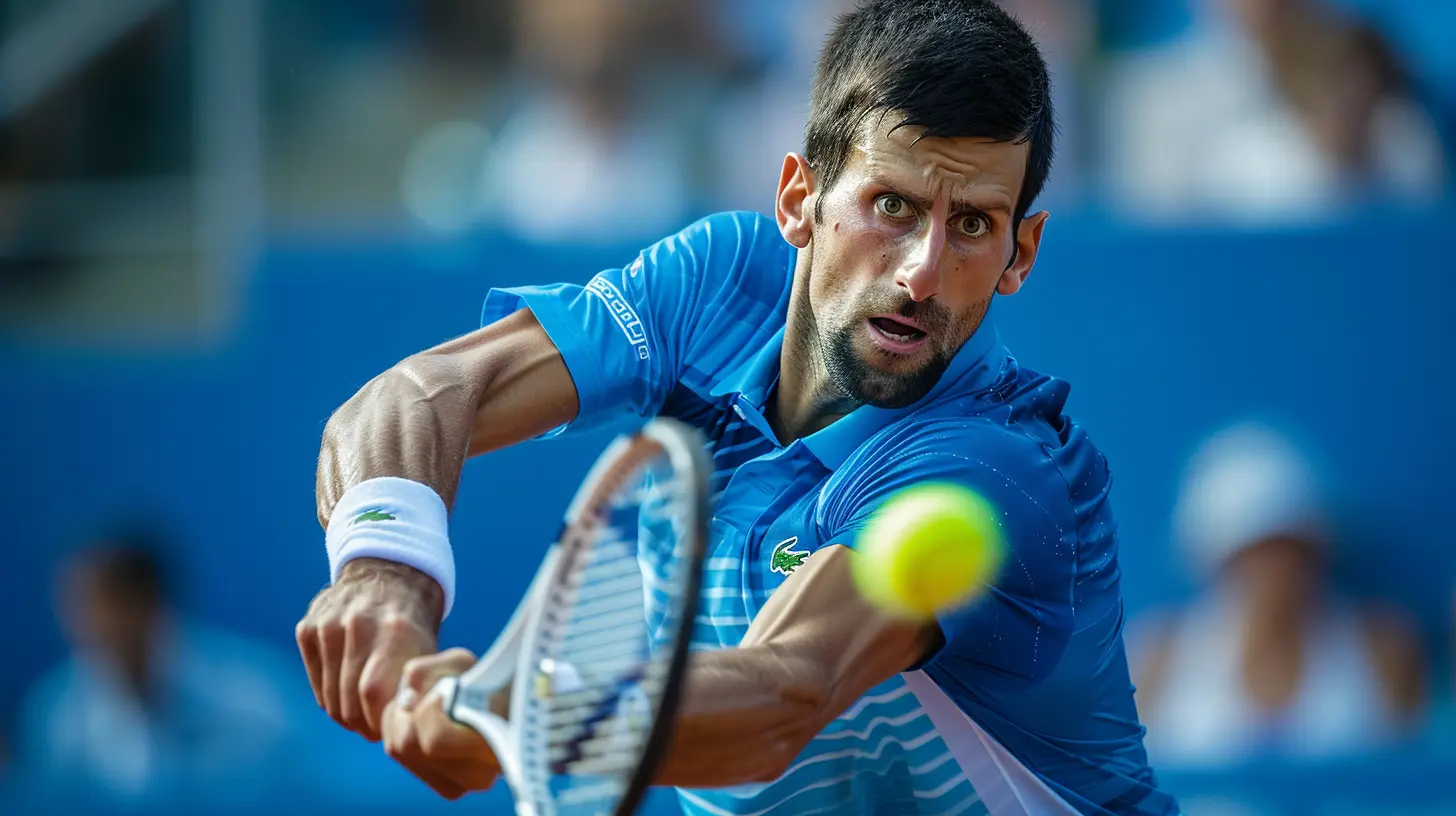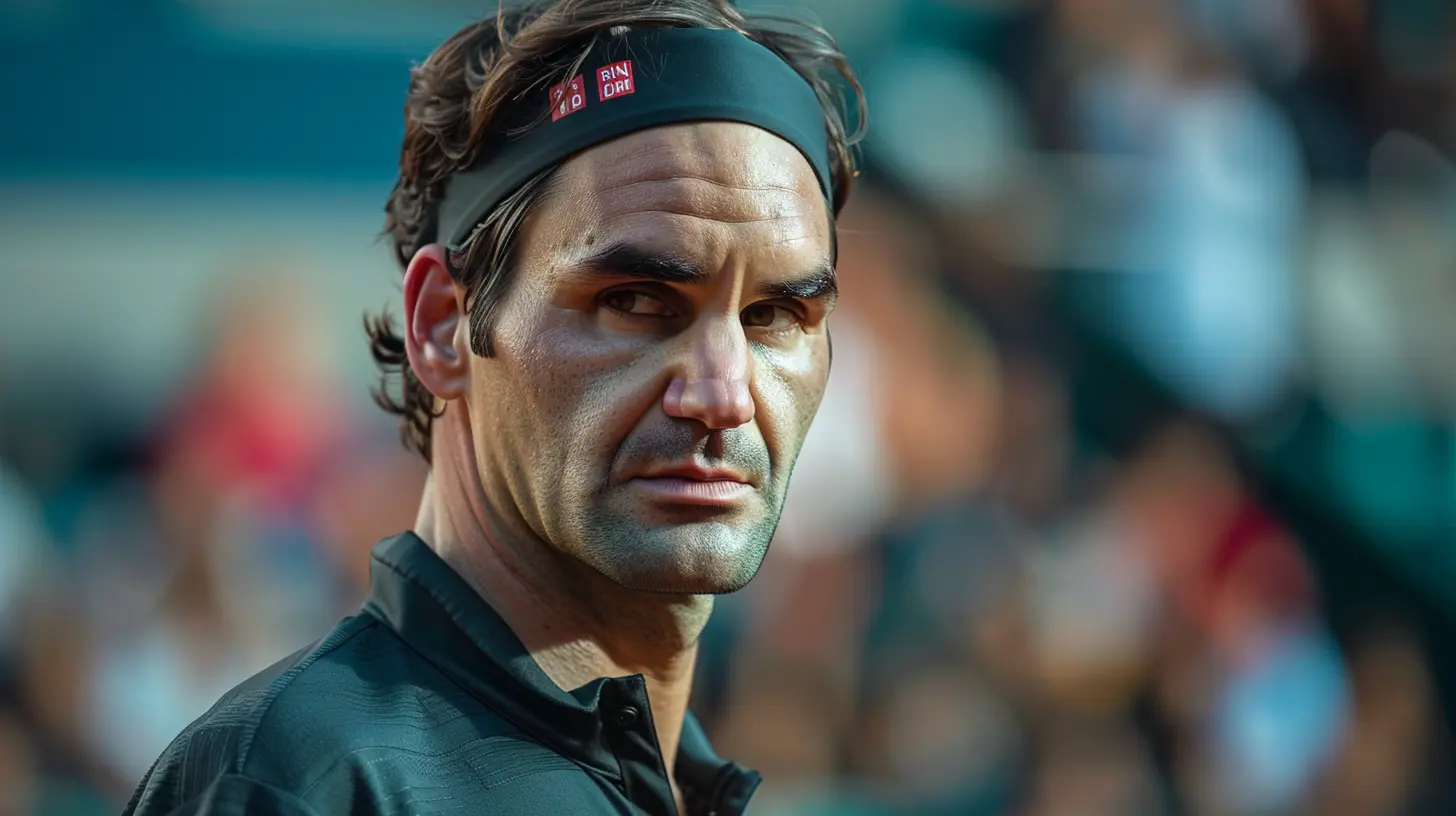The Role of Sports Psychologists in the Careers of Top Tennis Players
10 October 2025
Let’s be honest—when we think about elite tennis players, we usually picture lightning-fast serves, tireless rallies, and jaw-dropping match points. We marvel at the physical stamina, the raw talent, and the hours spent drilling on the court. But there’s one thing we often forget to mention—the mental game. That’s where sports psychologists come into play.
In the world of professional tennis, every second counts, every point matters, and every distraction can cost a match. While physical training sharpens the body, it’s the mind that often determines who lifts the trophy and who exits early. Sports psychologists, as quiet as they may be in the spotlight, have become essential teammates behind the scenes for tennis stars.
So, what exactly do they do? And why are they so crucial? Let’s dive deep into the powerful, game-changing role that sports psychologists play in shaping the careers—and the mental strength—of top tennis players.
The Mental Side of Tennis: Why It Matters
Tennis is as much a mind game as it is physical. Anyone who has ever played a tight match knows that your biggest opponent isn't always the one across the net. Sometimes, you're battling the voice in your head.Have you ever seen a pro fumble under pressure during a tie-breaker? Or completely dominate a set, only to crumble in the next? That’s the mind messing with them.
Unlike team sports, tennis players are out there alone. No halftime breaks with coaches. No teammates to pass the ball to. Just one racquet, one opponent—and a whirlwind of thoughts.
That’s why mental strength is absolutely non-negotiable. Top tennis players understand this. They know you can't train your brain with bicep curls, so they turn to someone who can help them master the mental game—a sports psychologist.
What Does a Sports Psychologist Actually Do?
Think of a sports psychologist as a personal trainer—but for your thoughts, emotions, and confidence. Their job? To help athletes perform at their absolute best, not just physically, but mentally and emotionally too.Here’s what they typically help with:
- Managing pressure and nerves
- Improving focus and concentration during matches
- Dealing with injuries mentally
- Building confidence
- Creating routines and habits for consistency
- Handling failure and bouncing back from defeats
- Cultivating a winning mindset
Sports psychologists use a toolbox of methods—visualization techniques, mindfulness training, mental rehearsal, stress-management exercises, goal-setting strategies, and more.
From Breakdown to Breakthrough: Real-Life Impact
Let’s get real here. Even the greats go through rough patches. And it’s no coincidence that some of the top tennis players have publicly talked about working with sports psychologists during their lowest points.Take Novak Djokovic, for example. He has openly credited his mental strength as one of the biggest factors behind his resurgence in 2018. After a slump, injuries, and uncertainty, he came back firing—and a lot of that had to do with the inner work he did.
Naomi Osaka has also been upfront about her mental health struggles. Her transparency shined a spotlight on how intense the mental load can be, even for champions. She reminded the world that it's okay to ask for help—and that taking care of your mind is just as important as training your serve.
Even Andy Murray, known for his grit, has talked about the mental side of tennis being the most challenging aspect of his career.
Behind every comeback story, there's often a sports psychologist helping to piece the puzzle back together.
Training the Mind Like a Muscle
This is where the magic happens. Just like lifting weights strengthens your arms, mental exercises can boost your resilience and composure on the court.Here’s how sports psychologists train the mind:
1. Visualization
Before they step on the court, many top players mentally run through points, coaches’ advice, and winning scenarios—like watching a highlight reel before it’s even happened.Visualization taps into the brain’s power to rehearse success. You can literally "practice" winning points in your head.
2. Mindfulness and Meditation
Staying present is easier said than done when the scoreboard isn’t in your favor. Mindfulness and meditation help players stay grounded, which is crucial when every point feels like the World Cup final.3. Breathing Techniques
A few deep breaths can do wonders during high-pressure situations. It can lower your heart rate, refocus your energy, and rein in the chaos.4. Confidence Building
Affirmations, self-talk, journaling—sports psychologists tailor these tools to help players believe in themselves, especially when the chips are down.The Silent Advantage in Close Matches
Tennis is full of tight moments—match points, sudden-death deuce games, melt-your-brain tiebreakers. When both players have similar skills, fitness levels, and experience… what makes the difference?It’s mental toughness.
That clutch factor—where you stay calm, make the right decisions, and keep believing—often stems from solid psychological prep. Sports psychologists help players develop that “never say die” attitude.
So when the crowd is roaring, and it’s 5-5 in the third set, mental training kicks in like an auto-pilot mode. That’s the silent advantage.
The Personal Touch: Tailored Support
Every player is unique. Some are fiery and emotional (hello, Nick Kyrgios), while others are cool and collected (Roger Federer, we’re looking at you). A sports psychologist doesn’t use a one-size-fits-all formula.They get to know the player: their fears, hopes, habits, and triggers. Then, they create a personalized game plan—just like a coach would for strategy. This individual approach helps unlock each player’s personal edge.
It's like working with a mental tailor, stitching together a mindset that fits perfectly under the pressure of Grand Slams.
Changing the Stigma Around Mental Health in Sports
For a long time, talking about mental health was considered taboo—especially in elite sports. Showing vulnerability was mistaken as weakness. But that’s changing, and sports psychologists have been a big part of that shift.Today, more tennis players are opening up, encouraging younger athletes to embrace mental tuning as much as physical training.
This change is powerful—not just for the pros but for anyone who plays sports, even recreationally. It helps normalize the idea that taking care of your mind isn’t optional—it’s part of the journey.
Junior Players and the Next Generation
Guess what? The influence of sports psychologists isn't limited to pros. Many up-and-coming junior tennis players are being introduced to mental coaching early in their careers—and that’s a total game-changer.Why wait until you’re world-ranked to work on your mindset?
By learning mental skills from a young age, these players are more prepared for the rollercoaster of competitive tennis. They know how to bounce back, how to stay focused, and how to enjoy the game—yes, even under pressure.
Coaches and Psychologists: A Winning Combo
A great tennis coach teaches technique, strategy, and physical conditioning. A sports psychologist fills in the gaps with emotional resilience, clarity, and belief.When these two work together, it’s like having your brain and body in complete sync—and that’s where greatness happens.
Many tennis teams now include sports psychologists as permanent staff, just like fitness trainers. This isn't just a trend—it's becoming the standard.
Final Thoughts: The Invisible Power Behind the Racket
So, here’s the deal. Tennis may be a solo sport, but no champion wins alone. Behind every top tennis player, there’s a village of support—and sports psychologists are a key part of that crew.They don’t hit aces. They don’t run sprints. But they build champions from the inside out.
In a game where one point, one decision, or one second of doubt can cost everything, the role of a sports psychologist is nothing short of vital. They help players find their edge, stay grounded, and bring their full selves into every match.
So the next time you watch a tense, five-set thriller and see the winner raise their arms in victory, remember—there’s a strong mind behind that strong serve, powered by countless hours not just on the court, but in the mind.
And that’s the true power of mental game mastery.
all images in this post were generated using AI tools
Category:
TennisAuthor:

Nelson Bryant
Discussion
rate this article
1 comments
Milena Soto
Sports psychologists are crucial for top tennis players, enhancing mental resilience, focus, and performance under pressure during competitions.
October 22, 2025 at 3:01 AM

Nelson Bryant
Absolutely! Sports psychologists play a vital role in helping tennis players develop the mental strength necessary for peak performance, especially in high-pressure situations.


